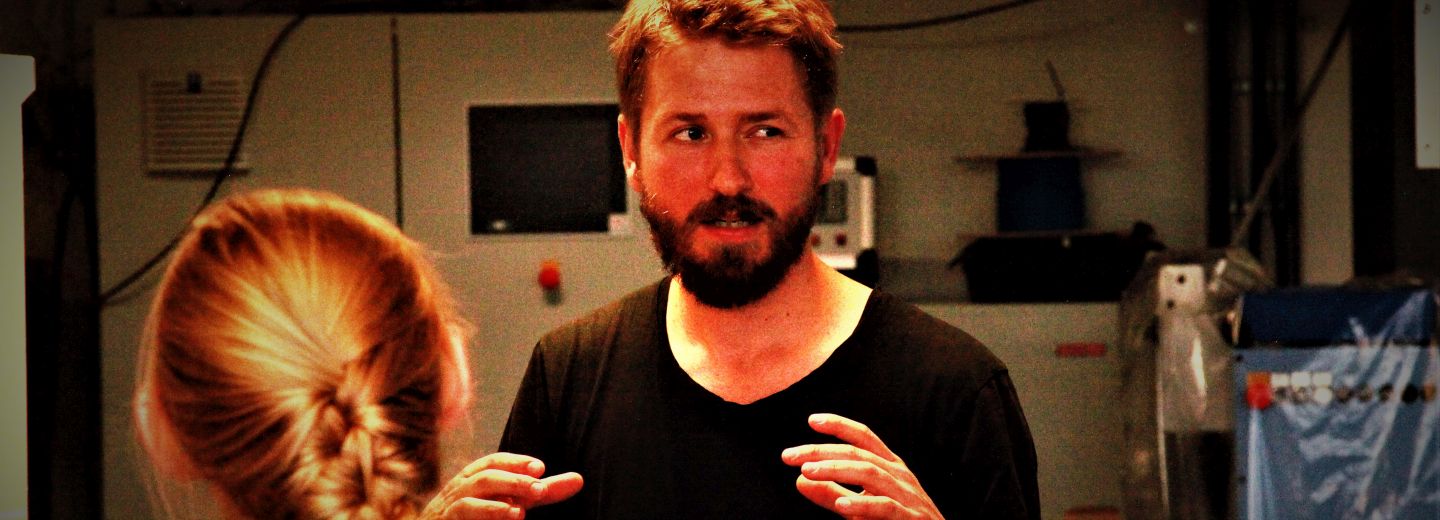
Morten Madsen appointed professor wsr
MSc in Engineering, PhD in Functional Materials and Nanotechnology, wsr and head of research Morten Madsen has been appointed professor wsr (with special responsibilities) at the Mads Clausen Institute, SDU. Despite his only 40 years of age, Morten Madsen has already manifested himself as an internationally acknowledged researcher within organic solar cells.
On 1 October, Morten Madsen joined a new position as professor wsr within organic solar cells (organic photovoltaics). After a postdoc stay with the Prof. Ali Javey research group at UC Berkeley in 2010-2011, Morten has led the solar cell research group at SDU NanoSYD, headed by Prof. Horst-Günter Rubahn, which could make giant strides within the development of organic and hybrid solar cells.
With Morten Madsen as spearhead, the solar cell group could develop several methods to enhance the efficiency and lifetime of organic solar cells and they are at present working on transferring these to upscaled solar cells fabricated under industrial conditions via roll-to-roll (R2R) technology. Hereby, their R&D activities contributes to the commercialisation which organic solar cells are facing right now.
Their research partners include various Danish research groups at Aarhus University, DTU and KU plus international partners at Berkeley, Sorbonne Paris, IMC and many more. Their work with R2R technology has also led to more industry collaborations that take part in connecting their research to industrial applications.
Moreover, organic and hybrid solar cells are much less energy craving to produce compared to traditional silicon solar cells, which means that they have an energy payback time of a few weeks only, that is, the time they need to generate the amount of energy that was needed to produce fabricate them.
Traditional solar cells need 1-2 years to even out the energy balance. Therefore, organic solar cells and Morten Madsen’s research are a potential important player within the green transition that is urgently necessary if we want to overcome the climate crisis the world is facing.
The date for professor Morten Madsen’s inaugural lecture has not yet been set.
See the video below in which Morten Madsen talks about his research:
With Morten Madsen as spearhead, the solar cell group could develop several methods to enhance the efficiency and lifetime of organic solar cells and they are at present working on transferring these to upscaled solar cells fabricated under industrial conditions via roll-to-roll (R2R) technology. Hereby, their R&D activities contributes to the commercialisation which organic solar cells are facing right now.
Large research network
Today, the solar cell group is leading several national and international research and development projects spanning from fundamental research (e.g. several Villum and Independent Research Fund Denmark’s FTP projects) to applied research and development activities (e.g. the EU projects ITN THINFACE and RollFlex as well as Bitten & Mads Clausen Foundation project).Their research partners include various Danish research groups at Aarhus University, DTU and KU plus international partners at Berkeley, Sorbonne Paris, IMC and many more. Their work with R2R technology has also led to more industry collaborations that take part in connecting their research to industrial applications.
Important player within green transition
Organic and hybrid solar cells are unique in the sense that they, apart from being ultrathin, also are flexible and transparent, which is why they can be integrated in windows and building fronts and thus generate energy exactly where it is needed: in the cities.Moreover, organic and hybrid solar cells are much less energy craving to produce compared to traditional silicon solar cells, which means that they have an energy payback time of a few weeks only, that is, the time they need to generate the amount of energy that was needed to produce fabricate them.
Traditional solar cells need 1-2 years to even out the energy balance. Therefore, organic solar cells and Morten Madsen’s research are a potential important player within the green transition that is urgently necessary if we want to overcome the climate crisis the world is facing.
The date for professor Morten Madsen’s inaugural lecture has not yet been set.
See the video below in which Morten Madsen talks about his research: